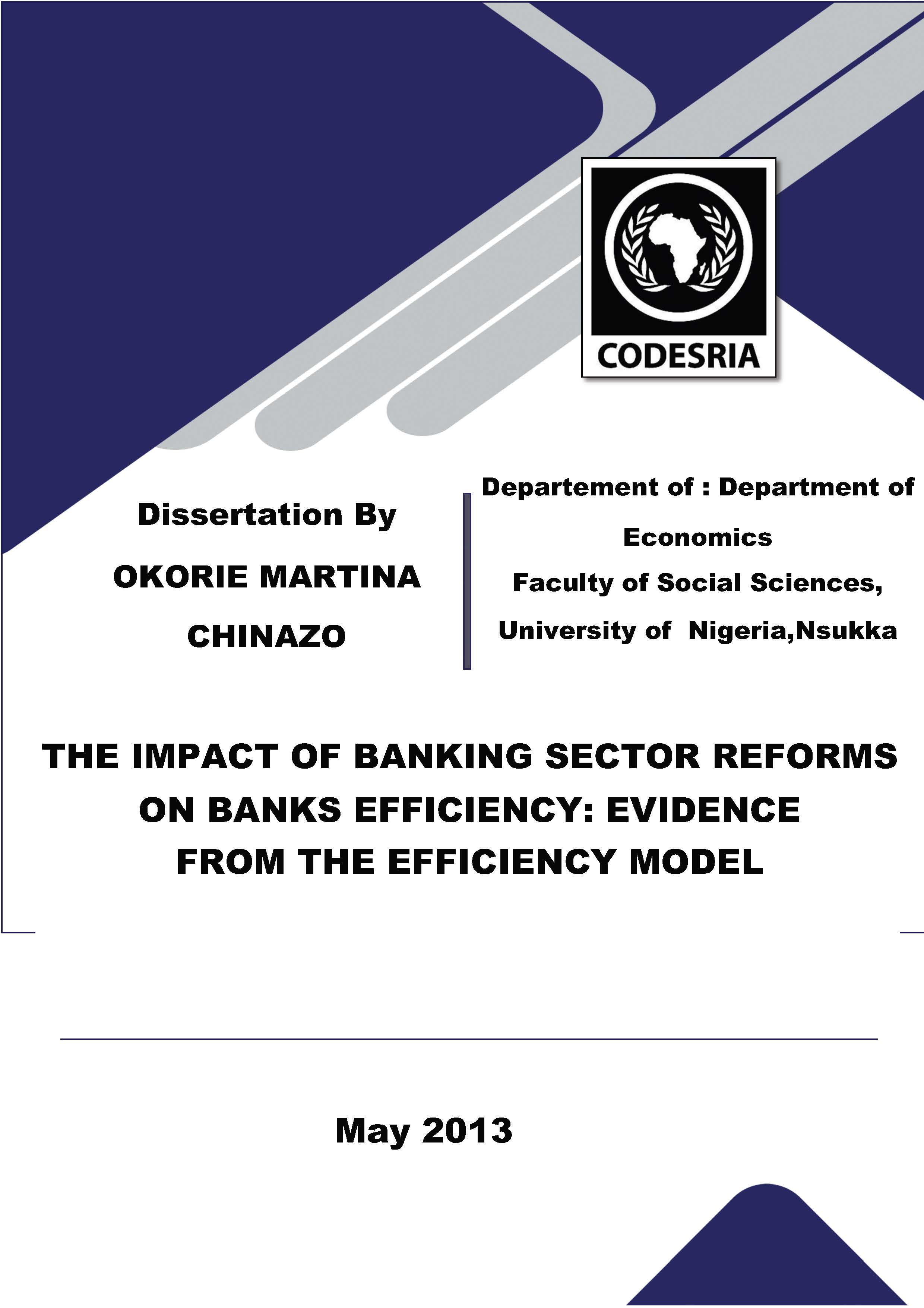THE IMPACT OF BANKING SECTOR REFORMS ON BANKS EFFICIENCY: EVIDENCE FROM THE EFFICIENCY MODEL
Mots-clés :
Banking, efficiency, financial policy, bank reform, financial reform, NigeriaSynopsis
There is a growing concern associated with the recent banking sector reform on whether it
achieved its purpose of making banks· sound or whether it led to inefficiency of banks.
Consequently, this study examined the impact of the banking sector reforms on banks'
performance and efficiency in two time periods (pre -consolidation period' and post -
consolidation). To evaluate this, the researcher adopted a non-parametric (Data Envelopment
Analysis) approach, and the factors that determine efficiency was examined. The findings
revealed varying levels of efficiency in both periods. Although some banks still remained
inefficient, there was a general improvement in efficiency in the post-consolidation period. The
ranking of banks showed that the banks that were able to achieve the N25billion capitalization
on their own (without relying on merger) and the banks that were among the largest, were
among the least efficient. More so, the study found that the CAMEL parameters are influencing
factors of efficiency, and that no single parameter can capture the holistic efficiency of banks. In
the light of this, the researcher recommends the simultaneous consideration of the CAMEL
parameters when proposing subsequent reforms and continuous examination of banks. Stringent
measures should be taken by the Central Bank in the supervision of banks such that no bank is
overlooked. Commercial banks in Nigeria should adopt the Baste II prescription of capital
adequacy and the CAMEL parameters should not be increased beyond optimal level as it leads
to a decline in efficiency.
Téléchargements
Références
Adegbite, 0. E., (2005) "Financial Sector Reforms and Economic Development in Nigeria: The Role of Management". Being A Paper Delivered at the Inaugural National Conference of the Academy of Management Nigeria at Abuja, Nigeria Titled Management: Key to National Development November 22-23, At Rock view Hotel, Abuja.
Adeyemi, K. S. (2007) "Banking Sector Consolidation in Nigeria: Issues and Challenges". Union Digest, Union Bank Publication.
Agca, S., De Nicole G., and Detragiache E. (2007). "Financial Reforms, Financial Openness and Corporate Borrowing: International Evidence". International Monetary Fund, Working Paper WP/07/186.
Ahmed, U., Farooq S., Jalil H. H., (2009). "Efficiency Dynamics and Financial Reforms: Case Study of Pakistani Banks". International Research Journal of Finance and Economics Issue 25.
Ajayi, M., (2005). "Banking Sector Reforms and Bank Consolidation Conceptual Framework". CBNs Bullion, 29 (2): 2-15.
Allen, D.S. and Ndikumana L. (2000)."Financial Intermediation and Economic Growth m Southern Africa". Journal of African Economies, Vol. 9, No. 2, pp. 132-60.
Alford, D. (N.D) Nigerian banking reform: recent actions and future prospects retrieved from http://ssrn.com/abstract=l 592599.
Andersen, B. T. and Tarp F. (2003) "Financial Liberalization, Financial Development and Economic Growth in LDCs". Journal of International Development, 15, p. 189-209.
Anyanwaokoro, M. ( 1999) Theory and policy of money and banking: Hosanna publications.
Balogun, E.D (2007) "Banking sector reforms and the Nigerian economy: performance, pitfalls and future policy options". MP RA Paper 3 804, University Library of Munich, Germany.
Banker, R., Chames, A, and Cooper, W., (1984) "Some Models for Estimating Technical and Scale Inefficiencies in Data Envelopment Analysis", Management Science 30, pp. 1078-1092.
Boot, A.W.A. (2002). "Relationship banking: What do we know?" Journal of Financial Intermediation, 9 (l), 7-25.
Caprio, G. and Klingebiel D., (2003). Episodes of Systemic and Borderline Financial Crises. World Bank, Mimeo.






